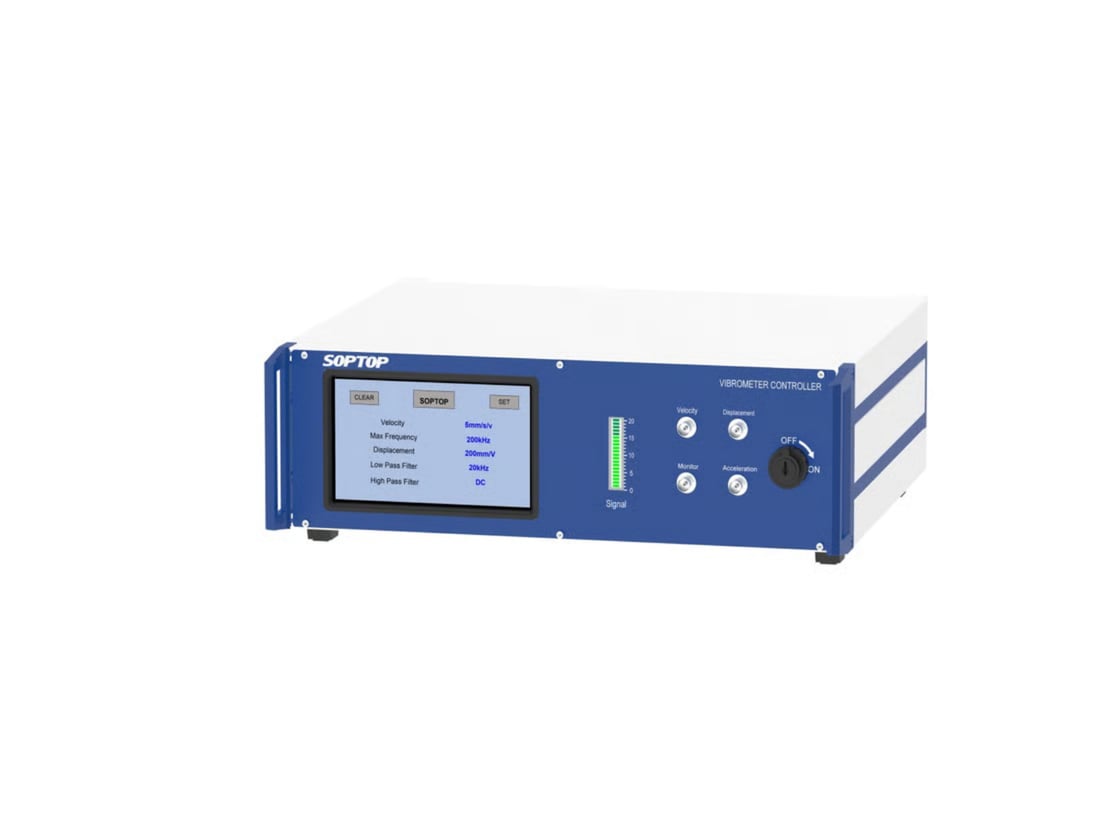A differential laser vibrometer is a precision instrument that measures vibrations with high accuracy and reliability. It uses laser beams to detect the movement of a target and provides detailed information about its velocity, displacement, and frequency. This technology is widely used in various industries for analyzing vibration characteristics and identifying potential issues in machinery and structures.
Principle of Operation
The operation of a differential laser vibrometer is based on the Doppler effect, where the frequency of a laser beam changes when it reflects off a moving target. By analyzing the frequency shift, the vibrometer can determine the vibration amplitude and frequency of the target. This non-contact method allows for measurements to be taken without interfering with the vibration characteristics of the object being analyzed.
Applications in Mechanical Testing
In mechanical testing, a differential laser vibrometer is used to study the dynamic behavior of components and systems. It can identify resonant frequencies, mode shapes, and structural defects that may affect the performance and durability of the equipment. By capturing accurate vibration data, engineers can optimize designs, troubleshoot issues, and improve overall product quality.
Quality Control in Manufacturing
Manufacturers rely on differential laser vibrometers for quality control purposes, ensuring that their products meet specifications and standards. By monitoring vibration levels during production processes, deviations and abnormalities can be detected early on, preventing costly defects and ensuring consistent product quality. This technology is particularly valuable in industries such as automotive, aerospace, and electronics.
Structural Health Monitoring
In structural health monitoring, a differential laser vibrometer is used to assess the integrity and performance of buildings, bridges, and other infrastructure. By monitoring vibrations caused by factors such as traffic, wind, or seismic activity, engineers can detect changes in structural stability and identify potential risks before they escalate. This proactive approach helps to prevent accidents and extend the lifespan of critical structures.
Research and Development
Researchers utilize differential laser vibrometers in a wide range of studies, from material testing to biomechanics. By analyzing vibration patterns and characteristics, scientists can gain insights into the behavior of various materials and systems under different conditions. This information is crucial for developing new technologies, improving existing products, and advancing scientific knowledge.
Advantages over Traditional Methods
Compared to traditional vibration measurement techniques, such as accelerometers and strain gauges, a differential laser vibrometer offers several advantages. It provides non-contact measurements, high spatial resolution, and the ability to measure vibrations on surfaces that are difficult to access. These benefits make it a valuable tool for applications where precision and reliability are paramount.
Calibration and Accuracy
To ensure accurate and reliable measurements, differential laser vibrometers require regular calibration and maintenance. Calibration procedures involve verifying the instrument's performance against known standards and adjusting any deviations that may affect the measurement accuracy. Manufacturers provide guidelines and services to help users maintain the integrity of their vibrometers and optimize their performance.
Future Developments and Trends
As technology advances, differential laser vibrometers are expected to become more compact, affordable, and versatile. Innovations in laser technology, signal processing, and data analysis will further enhance the capabilities of these instruments, opening up new possibilities for applications in diverse industries. The ongoing research and development efforts will continue to drive improvements in vibration measurement and analysis techniques.
Conclusion
In conclusion, a differential laser vibrometer is a valuable tool for analyzing vibrations in various industrial applications. Its non-contact measurement capabilities, high accuracy, and reliability make it an essential instrument for mechanical testing, quality control, structural health monitoring, research, and development. By investing in this technology, organizations can optimize their processes, improve product quality, and ensure the safety and reliability of their equipment and structures.
Quote Inquiry
contact us

